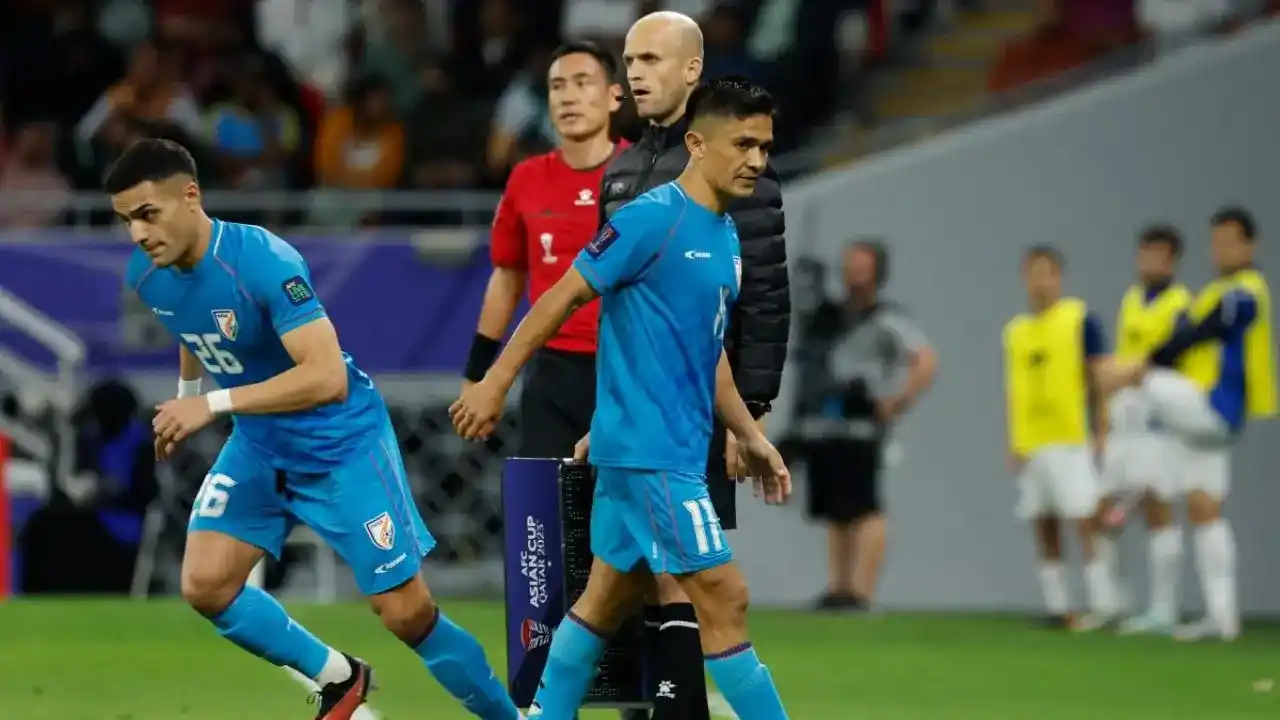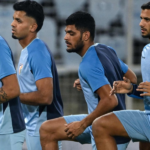AIFF writes FIFA The All India Football Federation (AIFF) has formally requested FIFA to investigate a highly contentious goal scored by Qatar in a recent World Cup qualifying match. The incident, which AIFF describes as a “grave supervision error,” has sparked a significant debate within the football community, raising questions about the integrity of officiating in international competitions.
Background of the Controversy
The controversy centers around a crucial qualifying match for the upcoming FIFA World Cup. Qatar, a team with a growing reputation in international football, scored a goal that ultimately decided the outcome of the match. However, the circumstances under which the goal was scored have been subject to intense scrutiny.
From the perspective of the AIFF, the goal was marred by multiple irregularities that they believe should have been addressed by the match officials. These include potential offside positions, possible fouls in the build-up to the goal, and questionable decisions made by the Video Assistant Referee (VAR). The AIFF’s formal letter to FIFA outlines these concerns in detail, urging the global governing body of football to undertake a thorough review of the incident.

The Goal in Question
During the match, Qatar’s forward, whose identity has not been disclosed in the AIFF’s letter, scored what appeared to be a decisive goal. However, upon closer inspection, several elements of the play have been highlighted as problematic by AIFF. First and foremost, there is an argument that the goal-scorer was in an offside position when the ball was played to him. Offside decisions are notoriously challenging, often requiring minute analysis and the use of VAR technology to determine the exact moment the ball was played and the position of the players involved.
The AIFF has pointed out that the VAR officials did not spend adequate time reviewing this critical aspect of the play. They argue that the offside lines, which are usually drawn to assist in such decisions, were not properly utilized, leading to an erroneous decision that allowed the goal to stand.
In addition to the potential offside, the AIFF has raised concerns about a foul that occurred in the build-up to the goal. According to the AIFF, a Qatari player committed a foul on an Indian defender, which should have been spotted by the referee or the VAR team. This foul, if recognized, would have halted the play and prevented the goal from being scored.

The Role of VAR
The Video Assistant Referee system was introduced to aid referees in making accurate decisions, especially in critical moments that can influence the outcome of matches. While VAR has been beneficial in many instances, its implementation and the consistency of its use have been subjects of ongoing debate.
In the case of Qatar’s controversial goal, the AIFF contends that VAR failed to deliver justice. They argue that the system’s protocols were not adequately followed, resulting in a significant oversight. The AIFF’s letter to FIFA emphasizes the importance of VAR in maintaining the integrity of the game and calls for a review of the system’s application during the match in question.
One of the key criticisms is the perceived lack of transparency in the VAR decision-making process. The AIFF has called for FIFA to release the communication between the on-field referee and the VAR officials during the incident. This would provide greater clarity on how the decision was reached and whether all relevant factors were considered.
FIFA’s Response and Potential Implications
FIFA has acknowledged receipt of the AIFF’s letter and has indicated that it will review the matter. However, the global football community is keenly awaiting FIFA’s decision on whether to launch a formal investigation. The outcome of this review could have far-reaching implications, not just for the teams involved, but for the broader use of VAR and the officiating standards in international football.

If FIFA decides to investigate the incident, several possible outcomes could emerge. The goal could be retrospectively annulled, though this is highly unusual and could set a complex precedent. Alternatively, the officials involved could face sanctions if it is determined that they failed to apply the rules correctly. Such a decision would reinforce the need for rigorous training and adherence to VAR protocols.
Broader Context of Officiating in Football
The AIFF’s request for an investigation is not an isolated incident. It fits into a broader narrative of ongoing dissatisfaction with officiating standards in football. Over the years, numerous high-profile matches have been marred by controversial decisions, leading to widespread calls for improvements in referee training and the use of technology.
The introduction of VAR was seen as a solution to many of these issues, but its implementation has been far from smooth. Critics argue that the system is not used consistently across different leagues and competitions, leading to confusion and frustration among players, coaches, and fans. The AIFF’s letter underscores the need for FIFA to address these concerns and ensure that VAR is used effectively and transparently.

The Importance of Fair Play
At the heart of the AIFF’s appeal is the principle of fair play, which is fundamental to the spirit of football. Ensuring that matches are decided by skill and sportsmanship, rather than by officiating errors, is crucial to maintaining the integrity of the game. The AIFF’s letter to FIFA is a reminder that the governing bodies of football have a responsibility to uphold these values and take action when they are compromised.
conclusion
the AIFF’s request for an investigation into Qatar’s controversial World Cup qualifying goal highlights significant issues with the use of VAR and the standards of officiating in international football. The outcome of FIFA’s review will be closely watched by the global football community, as it could have important implications for the future of the game. Whether FIFA decides to investigate the incident or not, the AIFF’s appeal serves as a call to action for continuous improvement in the application of technology and the training of match officials to ensure that the principles of fair play and integrity are upheld in every match.








